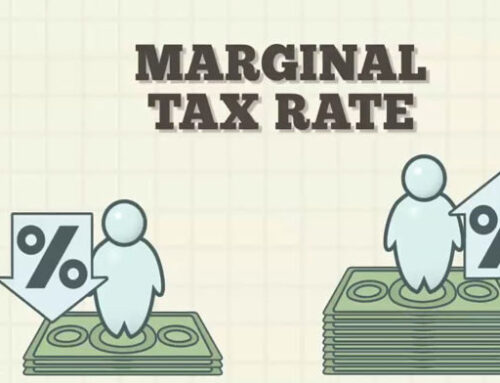Did last year bring significant changes to your life? Perhaps you embarked on a promising career, celebrated the arrival of a precious bundle of joy, or exchanged vows with your soulmate. If any of these resonate with you, it’s crucial to keep your trusted ally, the Canada Revenue Agency (CRA), informed. Major life changes and taxes often translate into significant tax implications. To help you through these transitions, we have outlined a few scenarios to ensure you’re well-informed every step of the way.
Navigating Life Changes and Taxes: New Job, New Baby, Newlywed?
Perhaps you embarked on a new and exciting career, embraced the joys of parenthood, or took the leap into marital bliss. Whatever the case, it’s important to consider the impact these Life Changes and Taxes can have on your taxes. So, let’s explore a few scenarios to help you understand how your taxes may be affected along the way.
You started a new job Transitioning from student life to the working world can be a big adjustment. Don’t forget to take advantage of any unused tuition and education credits from your student days. These credits can be carried forward and used to reduce your tax bill this year.
You tied the knot Congratulations on your wedding!
Make sure to inform the Canada Revenue Agency (CRA) about your new marital status by submitting the RC65 Form – Change of Marital Status for Life Changes and Taxes. Here are a few key points to keep in mind:
- While you and your spouse will file separate tax returns, you’ll need to include your partner’s Social Insurance Number (SIN) and net income on the first page for Life Changes and Taxes.
- Although you file separately, your new household income may affect benefits like the GST/HST and Canada Child Benefit (CCB).
You purchased your first home Say goodbye to renting and hello to homeownership! As a first-time homebuyer, you’re eligible for the Homebuyers’ amount, a $5,000 credit that translates to $750 in Life Changes and Taxes savings.
Here are a couple of additional details:
- If you bought the property with your spouse, you can split the credit if you’re both first-time buyers.
- Keep the necessary paperwork on hand to prove your home purchase in case the CRA requests it.
- If you used funds from your Registered Retirement Savings Plan (RRSP) for the down payment, you have a two-year grace period before repayment is required.
You’re expecting a baby Congratulations on the upcoming arrival of your little one! Here are a few tax-related considerations:
- You may start receiving Canada Child Benefit (CCB) payments based on your household income, providing financial assistance for raising your child for Life Changes and Taxes.
- Maternity or parental leave payments received through Employment Insurance (EI) are taxable, so be prepared for potential tax implications depending on your overall income for the year.
- It’s never too early to start thinking about an RESP (Registered Education Savings Plan) for your child’s future education. Starting early can qualify you for matched dollars through the Canadian Education Savings Grant.

Other significant life changes
If you’ve experienced other major life events not mentioned above, such as your child turning 18, a significant increase in your spouse’s income, a decision for one spouse to stay at home, for Life Changes and Taxes or caring for an elderly parent, your tax situation may have changed as well. Consulting a Tax Expert can help ensure accurate tax withholding from your employer and identify any potential credits or deductions you may qualify for.
When major life changes occur, it’s easy to overlook the impact on your taxes. However, taking the time to update the CRA on these tax-related events will save you headaches in the future for Life Changes and Taxes. So, keep them informed and stay on top of your tax game!
Also read: The Value of Assurance: Building Trust in an Uncertain World
Life is full of changes, both expected and unexpected. When major life events like a new job, welcoming a baby, or tying the knot occur, they often bring joy and excitement, but they can also have significant tax implications. In this blog post, we’ll explore how these life changes can affect your taxes and provide insights into how to navigate these tax adjustments successfully.
-
New Job
Starting a new job can bring about several tax-related changes, including:
- Withholding Adjustments: You’ll need to complete a new Form W-4 to update your withholding status. This form determines the amount of federal income tax that your employer withholds from your paychecks. Make sure it accurately reflects your current financial situation to avoid overpaying or underpaying Life Changes and Taxes.
- Retirement Plans: If your new employer offers a retirement plan such as a 401(k), you may need to decide whether to participate and how much to contribute. Contributions to retirement accounts can reduce your taxable income, providing potential tax benefits.
- Fringe Benefits: Different employers offer various fringe benefits, such as health insurance, flexible spending accounts (FSAs), or stock options. Understand how these benefits affect your taxes and take advantage of any tax-advantaged accounts offered.
-
Welcoming a Baby
Adding a new member to your family is a momentous occasion, and it comes with important tax considerations:
- Child Tax Credit: You may qualify for the Child Tax Credit, which can significantly reduce your federal income tax liability. Ensure you meet the eligibility criteria and claim this credit when filing your taxes.
- Dependent Care Expenses: If you incur expenses for childcare while you and your partner work, you may be eligible for the Child and Dependent Care Credit. Keep records of these expenses and report them accurately.
- Healthcare Expenses: Parenthood often involves additional healthcare expenses. Consider contributing to a Health Savings Account (HSA) or a Flexible Spending Account (FSA) to cover these costs with pre-tax dollars.

-
Marriage
Getting married is a life-changing event with several financial implications:
- Filing Status: You’ll need to choose your filing status when you file your tax return. Married couples can choose to file jointly or separately. Understanding the pros and cons of each option can help you make an informed decision.
- Tax Credits and Deductions: Marriage can affect your eligibility for various Life Changes and Taxes credits and deductions, including the Earned Income Tax Credit (EITC) and the Child Tax Credit. Assess your new tax situation to maximize these benefits.
- Gifts and Inheritance: If you receive gifts or inheritances as a married couple, be aware of the potential gift and estate tax implications. Consult with a tax professional to navigate these matters.
Conclusion
Life changes like starting a new job, having a baby, or getting married bring both joy and a need for financial adjustments. Understanding the tax implications of these significant life events is crucial for managing your finances effectively. Be proactive in updating your withholding, exploring tax-advantaged accounts, and taking advantage of available tax credits and deductions. Consulting with a tax professional can provide personalized guidance to ensure that you make the most of these Life Changes and Taxes while minimizing your tax liability. Remember that staying informed about changes in tax laws and regulations is essential for effective tax planning as you navigate life’s exciting transitions.
Recent Posts
FAQ
What tax benefit can first-time homebuyers claim?
First-time homebuyers can claim the Homebuyers' amount, a $5,000 credit that results in $750 in tax savings.




